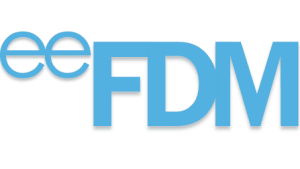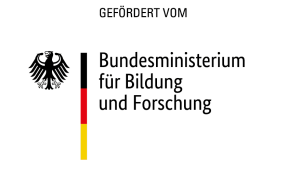
eeFDM logo
Graphic: Roman GerlachOn this website, you find information on the BMBF-funded project (April 2017 - June 2019) as well as links to the resulting publications referring to the following topics:
- Aim of the project
- Methods and Results
Support for Collaborative Projects
Preservation of Research Data
Development of Competencies
Evaluation of RDM
Sustainable Preservation of Research Data
The increasing importance of publishing research data compared to pure archiving leads to new requirements and developments on an organizational and technical level as well as in the framework conditions. This topic has been addressed in the eeFDM project.
- Poster (IDCC 2018, Barcelona, Spain): Navigating the long tail. Towards practical guidance for researchers on how to select a repository for long tail dataExternal link.
- Report: Langzeitarchivierung von Forschungsdaten - Stand der Entwicklungen. Unter besonderer Berücksichtigung von Deutschland, Thüringen und der FSU. (Long term archiving of research data - status of developments. With special reference to Germany, Thuringia, and the FSU., to be published, German)
A criteria catalogue for appraisal and assessment of research data upon submission to a data repository has been developed. It provides data managers of data managing platforms and data curators of data repositories with a set of criteria to evaluate data submissions – whether the data can be accepted as is, accepted after a certain extent of curation or have to be rejected. At the same time, the catalogue is meant to be a practical guide specifying information that need to be collected at submission time. It may also support and guide data providers to prepare data accordingly upfront and to provide all information needed at submission time.
- Poster (IDCC 2020, Dublin, Ireland): Criteria for appraisal and assessment of research data upon submission to a data repository.External link
- Catalogue: Criteria for appraisal and assessment of research data upon submission to a data repository. (to be published)
In addition, a guideline on preservation and publication of research data has been compiled taking biodiversity research as an example. It supports scientists in data selection and preparation as well as in repository and license selection.
- Guidelines for scientists at the FSU on preservation and publication of research data. Taking Biodiversity research and adjoining disciplines as an example. (to be published)
Development of Competencies for Sustainable Handling of Research Data
Material for raising awareness of RDM and for promoting best practices in RDM has been developed, and the website „An open science project“ with material and RDM stories has been set up. Further on, it is possible for all members of the RDM community to publish material and stories on this website for reuse.
- Poster (Beilstein Open Science Symposium 2018, Rüdesheim, Germany): Using open science principles for open science advocacy, the RDM case.External link
- 4 Videos for raising awareness: Why Research Data Management?External link (English with optional subtitles: English, German, Spanish, French)
- 10 Cartoons for raising awareness: Die wunderbare Welt der DatenExternal link (The wonderful world of data, German)
- Website of the subprojectExternal link for the development of awareness material
- List with videosExternal link on research data management and open data
Available RDM training concepts at the FSU have been analyzed and potential for improvement has been identified. Existing training offers have been improved and the new versions have been applied. Training material and formats are available in German and English language.
- Poster (DINI Annual Meeting 2017, Göttingen, Germany): Entwicklung von FDM-Kompetenzen an der FSU.External link (Developing RDM competencies at the FSU, German)
Evaluation of Effectiveness and Efficiency of RDM
The effectiveness and efficiency of RDM processes have been evaluated in two organizations. One user survey has been conducted among researchers of the Biodiversity Exploratories project (see above) to evaluate the central data management team. The second survey was conducted among researchers who sought advice from the RDM helpdesk at the FSU. The self-evaluation tools developed (questionnaires, online surveys) can be reused in the future by the parties involved as well as adapted for other purposes.
- Report: Evaluation im Forschungsdatenmanagement - Methodische Grundlagen und Anwendungspraxis. (Evaluation in RDM - Methodological principles and application practice, to be published, German)
- Poster (RDA Germany Meeting 2020): Evaluation der FDM-Beratung. Am Beispiel der KS FDM der FSU.External link (Evaluation of RDM advisory services. Taking the RDM helpdesk of the FSU as an example., German)
- Report: Evaluation des Beratungsangebots der Kontaktstelle Forschungsdatenmanagement (KS FDM) an der Friedrich-Schiller-Universität Jena.External link (Evaluation of the advisory service of RDM helpdesk at the FSU, November 2019, German)
- Report: BExIS user survey 2019: Evaluation des Zentralen Datenmanagements der Biodiversitäts-Exploratorien (ZDM-BE)External link (Evaluation of the central data management of the DFG SPP Biodiversity Exploratories, October 2019, German)
BMBF Logo
Graphic: BMBFFunding
The project was funded by the Federal Ministry of Education and Research (BMBF, reference no. 16FDM009) associated with the call on investigating the management of research data in their life cycle at universities and other research institutionsExternal link (German). As part of this call, 21 projectsExternal link have been funded (German).

